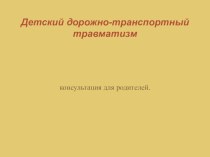- Главная
- Разное
- Бизнес и предпринимательство
- Образование
- Развлечения
- Государство
- Спорт
- Графика
- Культурология
- Еда и кулинария
- Лингвистика
- Религиоведение
- Черчение
- Физкультура
- ИЗО
- Психология
- Социология
- Английский язык
- Астрономия
- Алгебра
- Биология
- География
- Геометрия
- Детские презентации
- Информатика
- История
- Литература
- Маркетинг
- Математика
- Медицина
- Менеджмент
- Музыка
- МХК
- Немецкий язык
- ОБЖ
- Обществознание
- Окружающий мир
- Педагогика
- Русский язык
- Технология
- Физика
- Философия
- Химия
- Шаблоны, картинки для презентаций
- Экология
- Экономика
- Юриспруденция
Что такое findslide.org?
FindSlide.org - это сайт презентаций, докладов, шаблонов в формате PowerPoint.
Обратная связь
Email: Нажмите что бы посмотреть
Презентация на тему Samuel Sewall
Содержание
- 2. Samuel Sewall (March 28, 1652 – January
- 3. Sewall was born in Bishopstoke, Hampshire England,
- 4. Exterior of the Samuel Sewall house
- 5. Interior of the Samuel Sewall house
- 6. Apart from his involvement in the trials,
- 7. Family of Samuel Sewall, Jr. 1899 2 photographs : b&w.
- 8. Sewall married three times. His first wife
- 9. Samuel Sewall Jr. on the steps of
- 11. Samuel Sewall letter to Caleb Ray regarding
- 12. Скачать презентацию
- 13. Похожие презентации
Samuel Sewall (March 28, 1652 – January 1, 1730) was a Massachusetts judge, best known for his involvement in the Salem witch trials, for which he later apologized, and his essay The Selling of Joseph (1700),


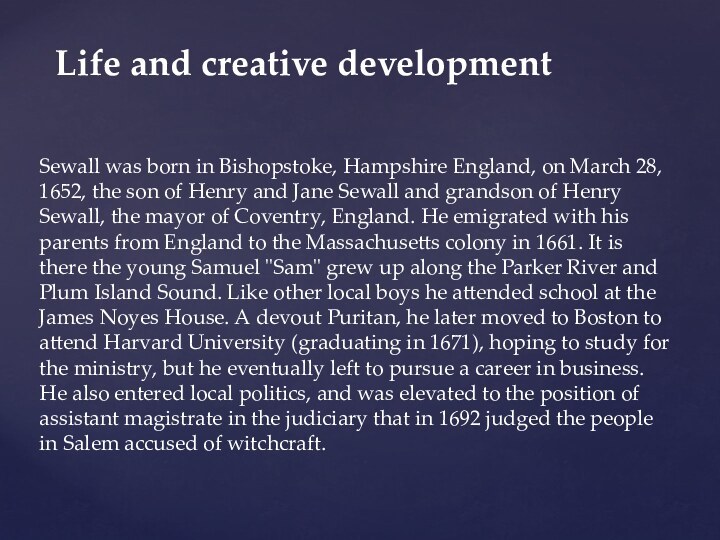
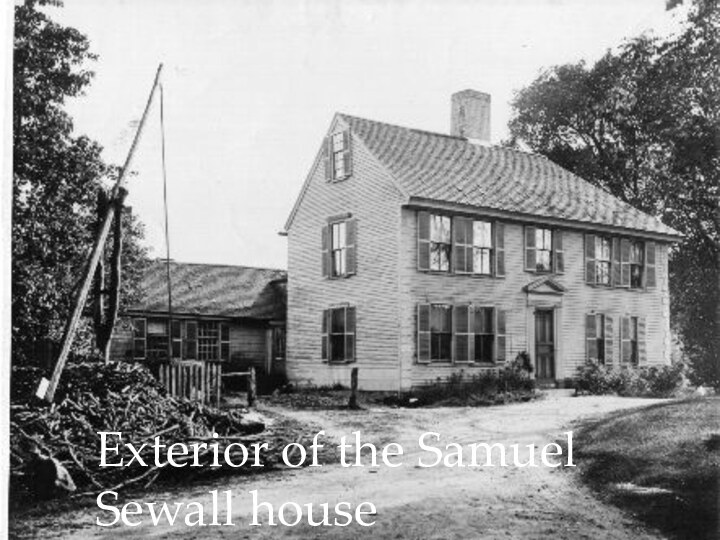
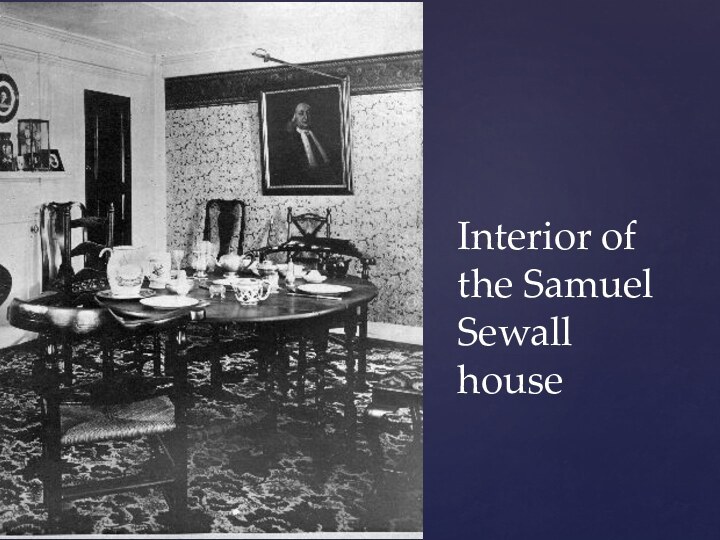

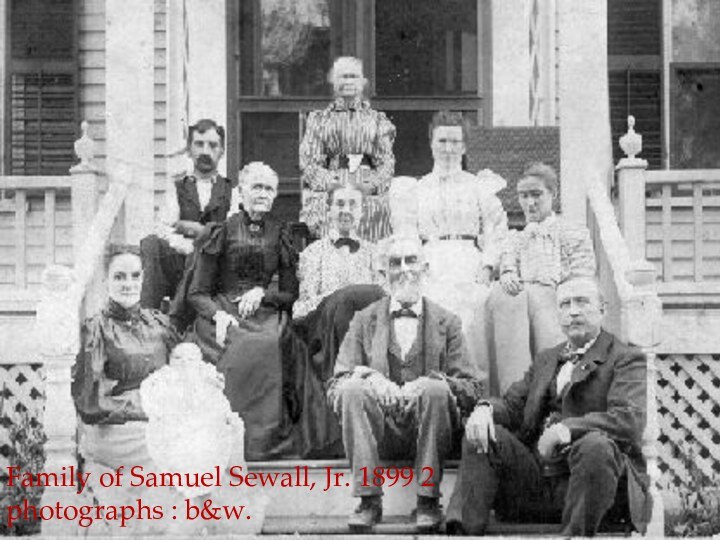
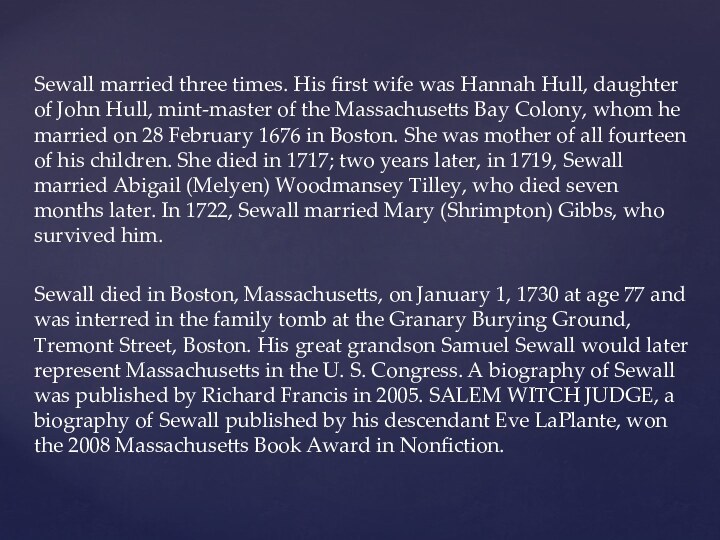
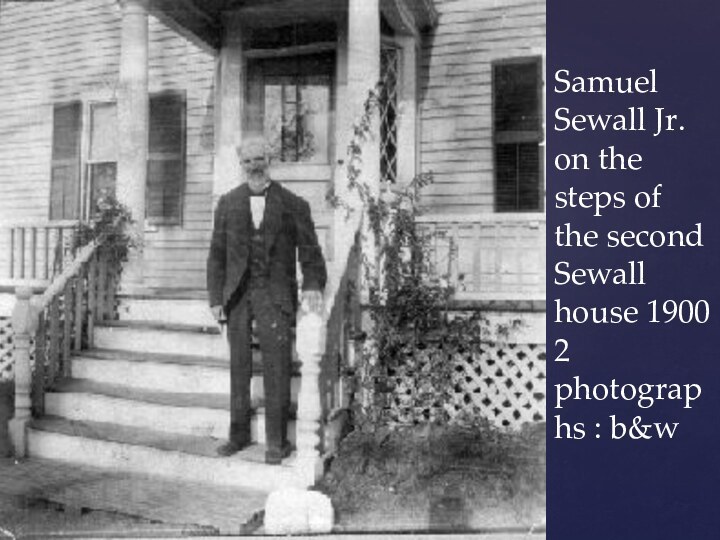
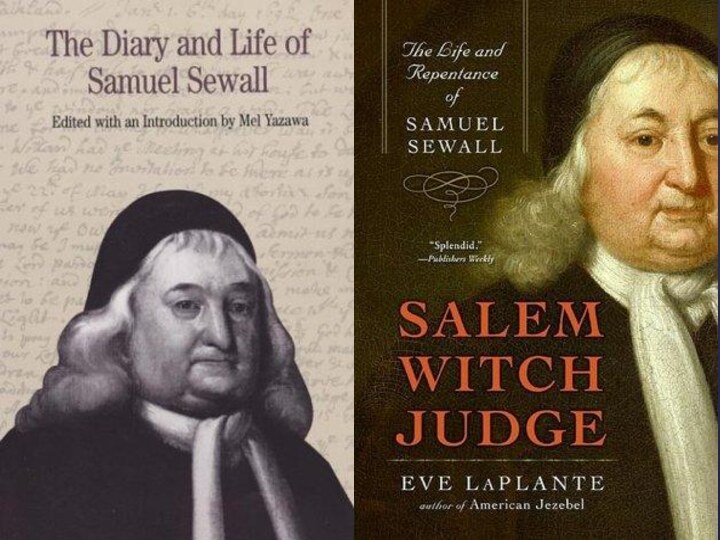
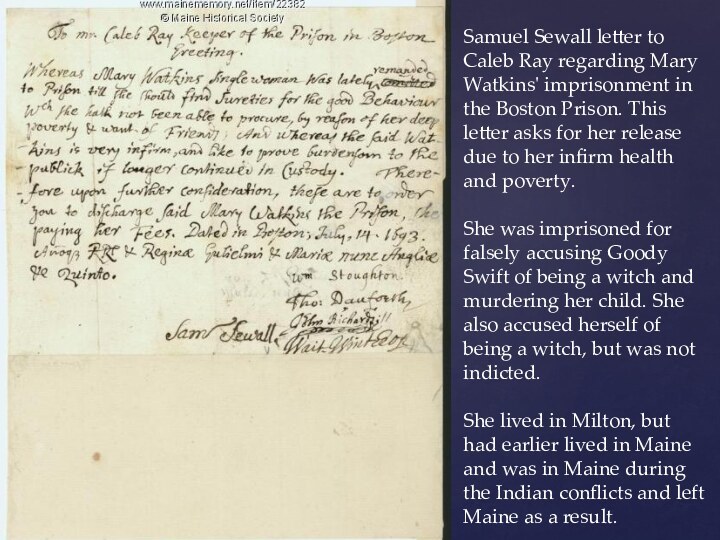
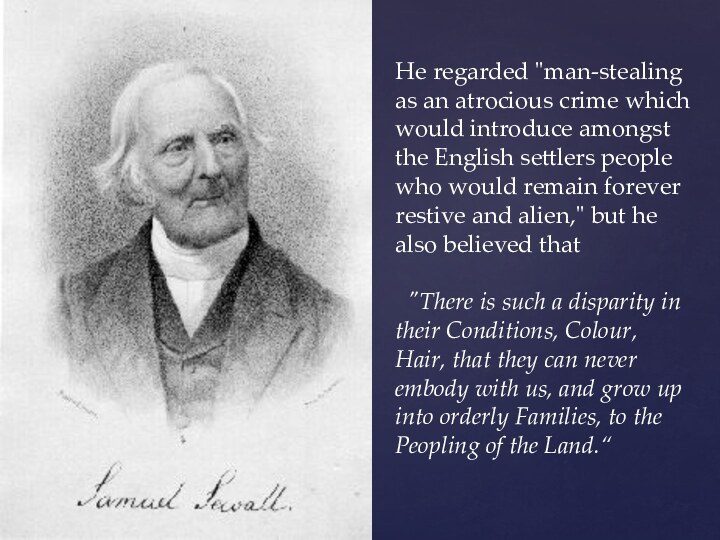
Слайд 3 Sewall was born in Bishopstoke, Hampshire England, on
March 28, 1652, the son of Henry and Jane
Sewall and grandson of Henry Sewall, the mayor of Coventry, England. He emigrated with his parents from England to the Massachusetts colony in 1661. It is there the young Samuel "Sam" grew up along the Parker River and Plum Island Sound. Like other local boys he attended school at the James Noyes House. A devout Puritan, he later moved to Boston to attend Harvard University (graduating in 1671), hoping to study for the ministry, but he eventually left to pursue a career in business. He also entered local politics, and was elevated to the position of assistant magistrate in the judiciary that in 1692 judged the people in Salem accused of witchcraft.
Life and creative development
Слайд 6 Apart from his involvement in the trials, Sewall
could be very liberal in his views. In The
Selling of Joseph (1700), for instance, he came out strongly against slavery, making him one of the earliest colonial abolitionists. There he argued:"Liberty is in real value next unto Life: None ought to part with it themselves, or deprive others of it, but upon the most mature Consideration.“
His 1725 essay "Talitha Cumi" refers to the "right of women." It is republished for the first time since 1725 in the appendix to the most recent biography of Sewall.
His Journal, kept from 1673 to 1729, describes his life as a Puritan against the changing tide of colonial life, as the devoutly religious community of Massachusetts gradually adopted more secular attitudes and emerged as a liberal, cosmopolitan-minded community. As such, the diary is an important work for understanding the transformation of the colony in the days leading to the American Revolution.
In 1717, Sewall was appointed chief justice of Massachusetts.
Слайд 8 Sewall married three times. His first wife was
Hannah Hull, daughter of John Hull, mint-master of the
Massachusetts Bay Colony, whom he married on 28 February 1676 in Boston. She was mother of all fourteen of his children. She died in 1717; two years later, in 1719, Sewall married Abigail (Melyen) Woodmansey Tilley, who died seven months later. In 1722, Sewall married Mary (Shrimpton) Gibbs, who survived him.Sewall died in Boston, Massachusetts, on January 1, 1730 at age 77 and was interred in the family tomb at the Granary Burying Ground, Tremont Street, Boston. His great grandson Samuel Sewall would later represent Massachusetts in the U. S. Congress. A biography of Sewall was published by Richard Francis in 2005. SALEM WITCH JUDGE, a biography of Sewall published by his descendant Eve LaPlante, won the 2008 Massachusetts Book Award in Nonfiction.




















